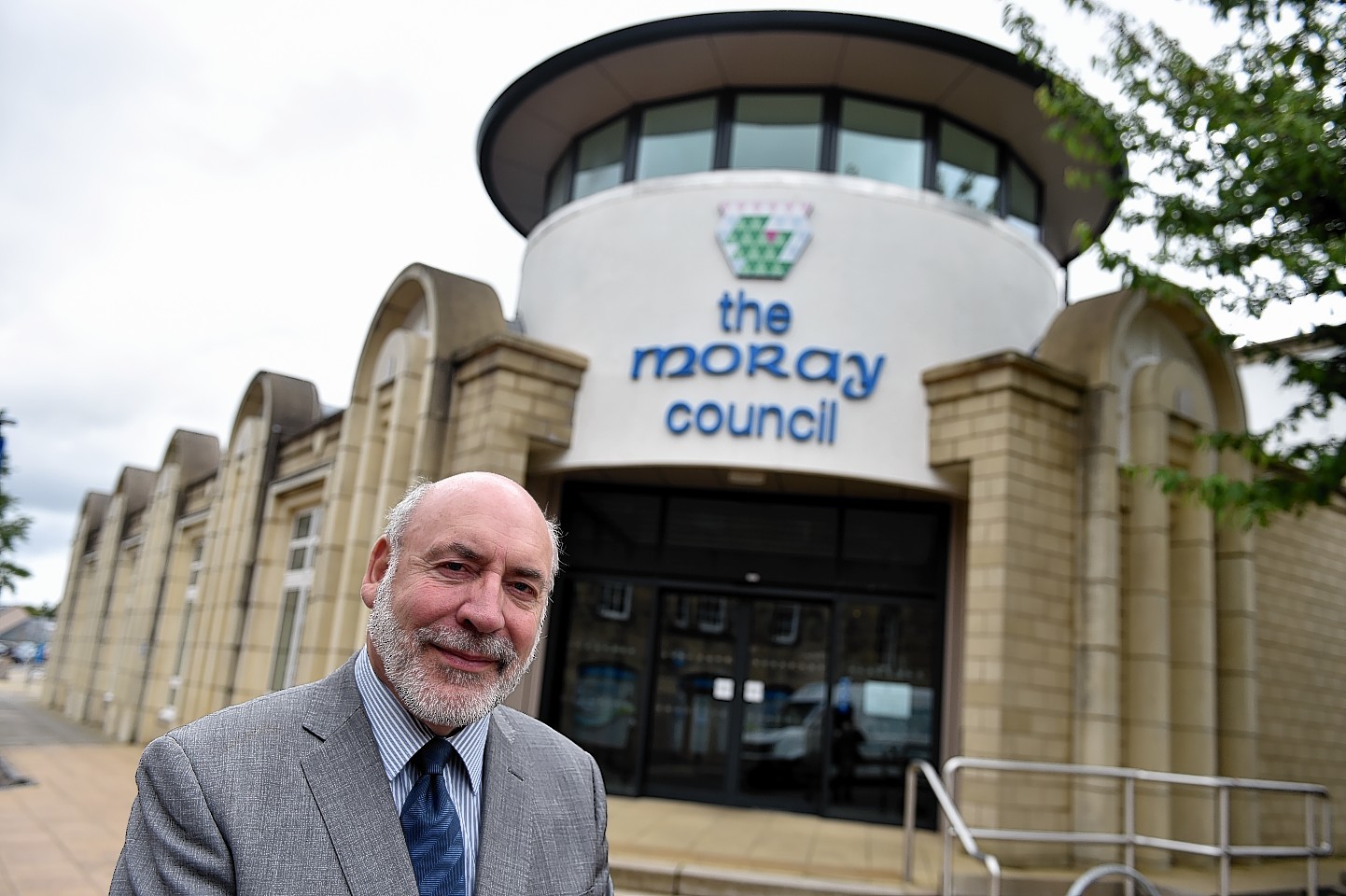Moray Council chiefs have abandoned plans to increase council tax unless strict Scottish Government penalties for unfreezing the levy are revoked.
During crisis talks yesterday, the local authority’s ruling administration group reluctantly elected not to pursue divisive proposals to raise the levy by 18%.
Now, council bosses are faced with the prospect of ransacking reserves and trimming spending across the board in order to tackle a budgetary deficit of nearly £12million.
Authority top brass had previously suggested that increasing council tax was the only way to spare frontline services from heavy cuts.
But Finance Secretary John Swinney threatened to withhold funding of £5million if the council broke a government edict to keep the charge frozen at 2007 levels.
Last night, council leader Stewart Cree said the decision to remove the plans from the table was undertaken begrudgingly.
Mr Cree said: “It’s extremely frustrating, this has been done with a gun to our head and an arm up our back.
“It’s fair to say that we’re not going to impose a council tax increase in circumstances which would give the people of Moray no benefit.
“Unless the sanctions against raising the tax are removed, then we won’t be able to pursue that option.”
The council’s ruling administration had argued that raising the levy by 18% was the only way plug a massive hole in its budget without cutting vital services.
The beleaguered authority has been left facing a deficit of more than £11million after Holyrood announced a £5million reduction in government funding in December.
Administration members posited that an 18% council tax increase would raise £5million, which would offset the deficit when combined with £5million from reserves and £1million from in-house reductions.
But Mr Swinney ruled that Moray Council could lose £5million of funding reserved for maintaining teacher numbers and integrating health and social care if it raised the tax.
Mr Cree said the administration group was “making progress” on determining alternative spending reductions which would keep services intact.
He added: “We don’t feel it’s fair to make Moray’s residents the victims of Mr Swinney’s ire.
“I don’t think they should suffer by losing services as a result of this, and we are examining other ways to fund the deficit.
“Every cut affects something, but we’re trying not to affect frontline services.
“That could mean deferring spending on certain projects until next year, and using more money from our reserves than first intended.”
Forres councillor George Alexander said that, in pursuing moves to unfreeze council tax, the local authority had opted to follow “the road less taken”.
And he bemoaned the fact that threats of Scottish Government reprisals had stymied the proposal before it got off the ground.
Mr Alexander added: “Before even being allowed to make this decision, a big, nasty troll leapt out, waving a large club and threatening crippling financial penalties.
“Not surprisingly, we are now forced to accept that discretion is the better part of valour and we will have to do as Big Brother says.”
The Scottish Government has refuted claims that by withholding sums of funding allocation it is unfairly penalising authorities who may wish to unfreeze council tax.
Mr Swinney said: “Overall, as a percentage of total revenue expenditure, the reduction in local authority budgets is around just 2%.
“I recognise this will not be easy for councils to accommodate but I hope and expect cooler heads will come to realise this is a deal councils can and should accept.”
